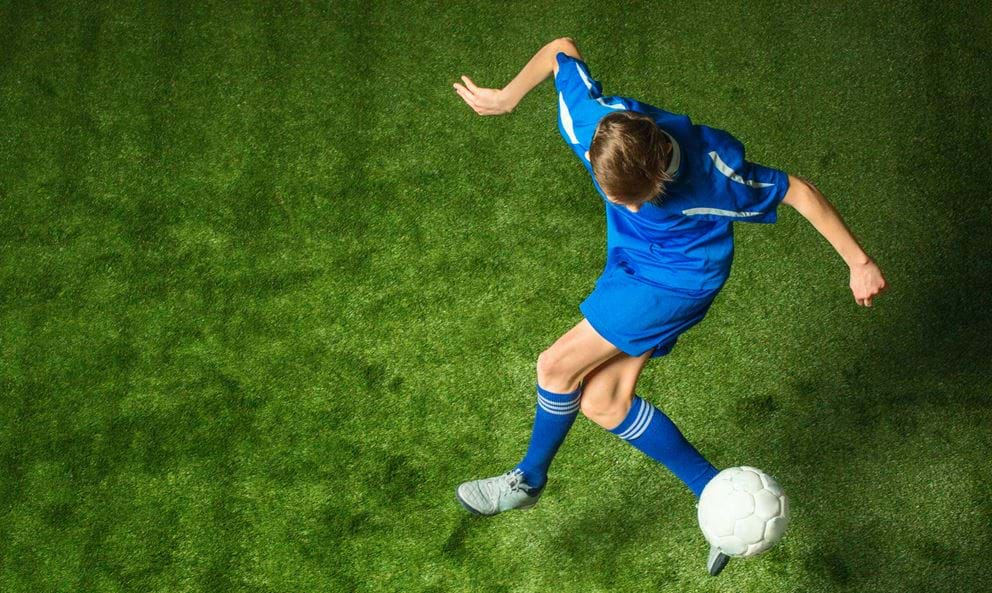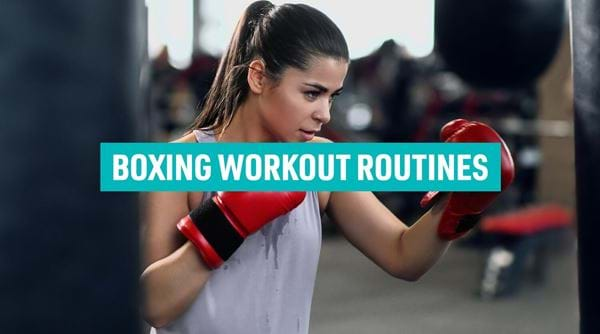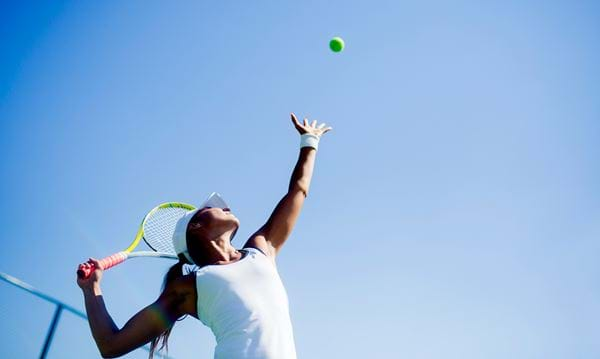How to train like a Premier League footballer

Page last updated: 14th September 2023
Best workouts for footballers | Strength workout for defenders | Agility workout for strikers | Speed workout for strikers | Recovery | Nutrition
Professional footballers have a demanding schedule, with regular training sessions and an extensive amount of time focused on practising and honing their skills. But what kinds of workout are they doing to improve their pitch performance?
Whether you’re enjoying a monthly kickabout with friends or are training for your own football career, these are some of the best workouts and fitness drills you can try to improve your own footie skills.
What are the best exercises and workouts for football players?
Footballers don’t all follow the same exercise plan — whether they’re defending or striking, each player will trains differently based on their position and style of play. Their recovery and nutrition plans will all vary too, depending on their role within the game and their own personal needs and goals.
Want to train like like a professional footballer? Next time you’re in the gym, Ttry these exercises put together by Personal Trainer Phil Williams, each of which was inspired by legends like Virgil Van Dijk, Sergio Aguero or Pierre-Emerick-Aubameyang
Workout Plan for Football Defenders (strength and power)
Defenders need to keep the pressure on opposing strikers by limiting their time on the ball. To do this, they work on developing their strength and power. Phil has created the following workout, inspired by Liverpool Defender Virgil Van Dijk, to boost these important devensive skills. Follow these exercises:
- Bulgarian split squat 4 x 6 (2-3 minute rest between sets)
- Single leg box jump 4 x 6 (2-3 minute rest between sets)
- Prowler push heavy for 10 seconds (1 minute rest between sets)
- Pendlay row SS barbell push press 3 x 6 (2-3 minute rest between sets)
These exercises build strength and power on one foot (similar to the running stance of a footballer) rather than two. The goal is to increase the weight on a weekly/bi-weekly basis.
Workout Plan for Football Strikers 1 (agility and stamina)
Strikers need to be available at any moment. Taking a second to rest can be the difference between 1 point, and 3 points. Strikers must be agile and have excellent stamina, which, along with the skills of ,now ex-footballer Sergio Aguero, has inspired Phil’s workout plan below:
- Barbell lateral lunge 3 x 12 e/s (90 seconds rest between sets)
- Ladder in-and-outs into sprint 5 sets (90 seconds rest between sets)
- Treadmill interval training 10 seconds on/20 seconds off x 8
- Prowler push lighter weight, as quick as possible (60 seconds rest between sets)
This workout can be done as four separate exercises, or if you want to increase the intensity as a HIIT workout, complete all movements back to back.
Workout Plan for Football Strikers 2 (speed)
It’s also important for strikers to get in behind the opposing team's defensive line, close to the goalkeeper - this means speed and adaptability are key.
Inspired by ex-Arsenal footballer Pierre Emerick Aubameyang, Phil has created the workout plan below to help you get faster and more mobile on the pitch.
- Dumbbell step-ups 3 x 6 e/s (1-2 minutes rest between sets)
- Interval sprints (10 seconds on 20 seconds off x 8)
- Hip thrusts 3 x 8 (1-2 minutes rest between sets)
- Depth drops 3 x 8 (1-2 minutes rest between sets)
Increasing speed by driving off one foot is essential for strikers. Working your lower body through single leg work, at a low rep, will increase strength and power. Depth drops will also improve reaction time.
How do footballers recover after training?
Training the right way is essential, but how do you recover properly, ready for the next match?
Footballers plan for recovery ahead of time. During pre-season, players have less recovery time as they’re continually improving their cardiovascular fitness; however, as soon as the season ends, recovery becomes a priority.
Here’s a quick checklist of how to recover properly:
- Active recovery: Light movements like walking or cycling stimulate blood flow and reduce muscle soreness.
- Increase protein intake: Protein builds and repairs muscles. 2g of protein per kg of body weight should set you on the right track for a successful recovery. Discover some of our high protein recipes here.
- Quality sleep: Improve your sleep quality by going to bed earlier or limiting time spent scrolling through social media/watching TV before bed. Aim for between 6 and 8 hours of sleep every night.
- Hydration: On average, a footballer will run between 8 and 12km per game. A 2% drop in hydration levels can be enough to notice a drop in performance so hydration is vital. Weigh yourself before and after training and drink 1.5 times5x the amount of fluid you lose sweating. Aim to drink a minimum of 2 litresliters of water per day when you’re not training.
- Stretching and mobility work: Stretching and mobility exercises help to maintain joint flexibility and reduce the risk of injury.
What do footballers eat?
Wayne Rooney once said "I tend to just have cereal before a game, probably a bowl of Coco Pops. The normal ones, not the Moons and Stars." Rio Ferdinand was spotted snacking on Jaffa Cakes at half time.
If you don’t want to reach for the cereal box or snack on biscuits before a match, here’s what most footballers eat (hint: it’s not just pasta and chicken).
- Eggs
- Oily fish
- Spinach
- Blueberries
- Beetroot
- Broccoli
- Chia seeds
Players will naturally reduce their calorie output during the off- season as they’re not as active. But as pre-season begins, their energy output will increase, and more calories are needed.
Some players have different approaches for the days they are playing/training compared to rest days, as a rest day will require less energy, they may choose to reduce their calorie intake.
Although meal timing isn’t important for weight loss/gain, it’s a good idea to leave time between eating and playing. As a guide, eat carbohydrates and fat beforehand, and consume carbohydrates, fats and protein post-workout. This can vary, as some people prefer to eat close to training, whereas others find it easier to train on an empty stomach.
You’ll be training like a footballer before you know it
If you’re interested in other ways your gym workouts can boost sports performance, you can check out our best gym workouts for tennis players guide, or these tips from Sir Chris Hoy on strength training for cyclists. If you need help for a specific sport, consider working with a PureGym personal trainer who will be able to support you as you train.


